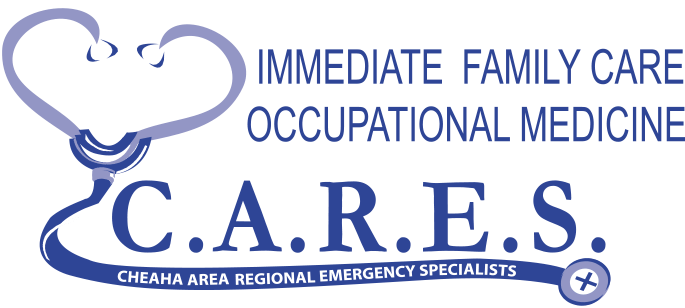Acountable Care FAQ's
What is an ACO?
An Accountable Care Organization (ACO) is a group of doctors and other healthcare providers who agree to work together with Medicare to give you the best possible care. ACOs may take different approaches to giving you coordinated care. Some ACOs may have special nurses that help you set up appointments or make sure your medications are in order when you enter or leave a hospital. Other ACOs may help your doctors get you equipment for monitoring your medical conditions better at home, if you need it. Most ACOs use advanced systems that let them more carefully coordinate your care, and make sure your doctor has the most up-to-date information about your health.
The goal of the ACO is to support your doctor in caring for you by making sure they have the most up-to-date information about your health and your care. For you, this means your doctors communicate better with each other, and you avoid having duplicate tests or answering the same questions over and over. Working together, your doctors can do more to follow your health, make sure you get the best possible care, and may hire additional staff to help meet your unique care needs, depending on what works best for you.
Doctors and other healthcare providers choose to participate in an ACO because they’re committed to providing you with a better care experience. They may also be rewarded for offering you better, more coordinated care. If your doctor chooses to participate in an ACO, you will be notified, either in person or by letter.
An ACO isn’t the same as a Medicare Advantage Plan or Health Maintenance Organization (HMO). You’re still in Original Medicare, and your Medicare benefits, services, rights and protections won’t change. And you still have the right to use any doctor or hospital that accepts Medicare at any time, the same way you do now.
How do I know if Doctor XX is in an ACO?
Dr. XX is participating in an ACO. You will receive more information [choose one or both phrases: either in the mail or the next time you are in the office]. I can also send you information if you like.
If I have not been notified that Doctor XX is in an ACO, what do I need to do? 2
You don’t need to do anything right now. Doctor XX decided to participate in an Accountable Care Organization (ACO). Even though Doctor XX is participating in an ACO, your Medicare benefits won’t change. You’ll still be in Original Medicare, and you’ll still have the right to use any doctor or hospital that accepts Medicare, at any time.
Do I have to participate in an ACO since Dr. XX is?
Only your doctor, in this case Dr. XX, participates in an Accountable Care Organization (ACO). You, [his/her] patient, do not participate in the ACO.
You still have the right to see any doctor or hospital that accepts Medicare, at any time.
You can continue getting care from Doctor XX. Or, you can choose to see a doctor who doesn’t participate in an ACO.
Can I still see all of my regular Medicare doctors and healthcare providers even though Doctor XX participates in an ACO?
It’s important to know that:
_You can still go to any doctor, hospital, or other provider that accepts Medicare. Nobody can restrict which providers you see.
_You are still in Original Medicare.
_You are still entitled to all the same Medicare services, benefits, and protections.
Can I still choose to receive services from any new doctor, hospital or healthcare provider that I want to even though Dr. XX is participating in an ACO?
You can still choose to go to any doctor, hospital, or other healthcare provider that accepts Medicare. Nobody – not even Doctor XX – can prevent you from seeing the doctors, hospitals or providers you want.
What information about me will the ACO have access to?
To help doctors who participate in an ACO give patients like you the best possible care, Medicare wants to share some additional information about your care with them. This information includes things like doctor, hospital, and pharmacy visits in the past and moving forward. This information helps Doctor XX and the other ACO providers track the services you’ve already gotten, understand where you may need more care, and find ways to smooth the path for you if you have to transfer in or out of a hospital, or from the care of one doctor to 3
another. If you decide you do not want to have the information about your care shared with the ACO, you can do so.
How can I decline to have my personal health information shared?
We value your privacy, so it’s important to know that you can prevent Medicare from sharing this information at any time.
There are four ways that you can prevent your information from being shared:
_You can call 1-800 MEDICARE (1-800-663-4227). TTY users should call 1-877-486-2048 and tell the operator you are calling about ACOs. .
_You can complete and sign the “Declining to Share Personal Health Information” form in our office.
_If applicable, you can complete and sign the “Declining to Share Personal Health Information” form and return it to [insert address].
_We can send you a form to sign and return it.
Also, Medicare will not share any information about alcohol and drug treatment history, if you have received such treatment, unless you choose in writing to share it.
After your form or phone call is received, Medicare will update its records to show that you do not want to have your data shared. If you call 1- 800 Medicare, you will receive a letter confirming this change. It will take about 45 days for this change to take effect.
What if I change my mind and decide that I do want my personal health information shared in the future?
If you change your mind in the future, you may call our office and we will send you a form, called a“consent to Change Personal health Information Preference” form that you can complete and mail back to [insert address]. Or you can call 1-800 Medicare (1-800-663-4227) and tell them that you have changed you mind and that you do want your data shared. You will receive a letter confirming this change.
What if I change my mind later and decide that I do not want information shared about drug and alcohol treatment?
You can change your mind at any time. All you need to do is call 1-800 Medicare and tell them that you no longer wish to have your drug and alcohol treatment information shared. You will receive a letter confirming the change and it will take about 45 days to take effect. 4
How long do I have to respond to say that I do not want my personal health information shared with the ACO?
Medicare values your privacy. For that reason, you can prevent Medicare from sharing your personal health information, or otherwise change any of your preferences, at any time.
Just call 1-800 MEDICARE, and they can help you set your preferences the way you want them. You can also return the Declining to Share Personal Health Information Form to our office.
I recently enrolled in an MA Plan but I also received a notice that Dr. XX was part of an ACO, does that change anything?
Because you chose to enroll in a Medicare Advantage Plan, the notice you received about Accountable Care Organizations (ACOs) is no longer accurate. Please disregard it.
What if I am already happy with my care the way it is?
We’re glad you’re having a positive experience already. Dr. XX is participating in an ACO, you can continue to see him or her the way you have been. Doctor XX’s participation in an ACO won’t change your benefits in any way, and decisions about your care stay with you and Doctor XX.
How will being in an ACO help my doctor/Dr. XX?
Doctors in ACOs may have better access to the expertise, staff, and technology they need to make sure your care is coordinated across all the places you get services. For you, this coordination could mean less paperwork to fill out at the doctor’s office, avoiding unnecessary tests, or more help for you in dealing with any health conditions.
Physician is sending letters:
Dr. XX/ Your Office sent me a letter, what do I need to do?
You do not need to take any additional steps to continue to receive care from your usual providers. You’ll still be in Original Medicare, and you’ll still have the right to use any doctor or hospital that accepts Medicare, at any time.
I received a letter that Doctor XX participating in an ACO. What are the forms included in this letter? Do I have to fill them out? 5
It’s important to know that Dr. XX, not you, is participating in an Accountable Care Organization (ACO). You don’t have to fill out any forms or take any action to keep seeing him or her.
The letter you got should include a form “Declining to Share Personal Health Information,”
To help give you better care, Medicare would like to share information about visits you have made and visits you will make in the future to doctors, hospitals, or pharmacies. This information can help Dr. XX and other healthcare providers give you the best possible care.
You can choose to prevent Medicare from sharing this information by either by calling 1-800 Medicare; or completing the form you got and returning it to this office [insert address]. You should fill this form out ONLY if you don’t want Medicare to share information.
How can I have the letter I received about Doctor XX’s ACO participation translated into another language?
Medicare recognizes that some beneficiaries may need to get the information in the notification letters in a language other than English. For that reason, 1-800 Medicare staff can have someone read information about ACOs to you over the phone in your preferred language. Is that something that would be helpful to you? If so, please call 1-800 Medicare.
Can I receive a written translation of the letter I received from my doctor?
1-800 Medicare cannot provide you with a written version of the letter in [insert language] at this time. [Insert information here if your office has translated letters available]. Please know that you can always call 1-800 Medicare to get the information verbally, over the phone.
My relative received a letter from the ACO, but they passed away recently, what do I need to do?
We are sorry to hear about your loss. These letters were sent because of your relative’s history of receiving care from Doctor XX who is participating in the ACO, but using the official information that we had at the time. You don’t need to do anything further – over time, [insert name] will be removed from the list of patients affiliated with Doctor

